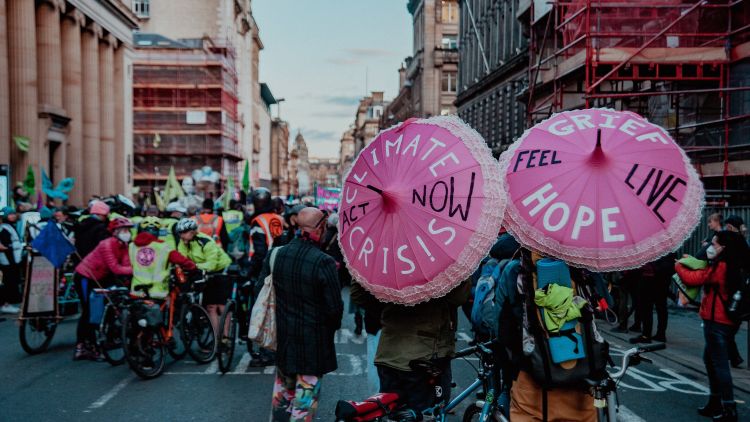The annual United Nations Climate Change Conference of the Parties (COP), is set to take place from November 6-18 this year in Sharm el-Sheikh, Egypt. Since the UN Framework Convention on Climate Change (UNFCCC) was adopted in 1992, COPs have been an opportunity for nations to come together and negotiate extensions of the original legally binding treaty to limit emissions (ex. The Kyoto Protocol, the Paris Agreement). COP summits require Parties to submit their updated plans to meet the Paris Agreement, and provide an opportunity for ongoing climate negotiations to be completed. COP27 is a fantastic time to bring climate education into your classroom. It’s a great opportunity to talk about everything from science to social studies in the context of climate change.
What issues will be discussed at COP27?
With climate events on the rise across the globe, this year’s summit has a few big objectives:
CLIMATE CHANGE MITIGTATION
What are countries doing to reduce or prevent their greenhouse gas emissions? UN Climate Change has said that current plans are still not enough to avoid catastrophic warming, so Parties are expected to present more ambitious 2030 emissions targets, show how they’re planning to implement the Glasgow pact call, and review their current plans.
CLIMATE CHANGE ADAPTATION
What are countries doing to adapt to a changing climate? In the past 16 months, British Columbia alone has experienced four climate events that have shattered the historical record. Adapting to climate change could mean anything from infrastructural changes to creating an updated flood or drought plan. Given the accelerated frequency of these events, the COP27 Presidency “expects nations to capture and assess their progress toward enhancing resilience and helping the most vulnerable communities.”
CLIMATE FINANCE
With finance-related items already on the agenda, developing countries have asked developed nations to reassure financial support given their $100 billion promise (Copenhagen 2009).
Loss and Damage: The exponentially increasing rate of climate events has resulted in almost all COP27 developing nations asking for “loss and damage” compensation. This request stems from the oversized impact of developed nations on the climate from the beginning of the industrialization period. Because developing nations have borne the brunt of these climate events, either without significant contribution to carbon emissions, or contribution at the behest of developing nations, they are requesting compensation. Though this item is not officially on the agenda, it’s expected to be a hot topic!
How to incorporate COP discussions into your classroom
There are many ways to incorporate COP discussions and climate change into your classroom. You could plan a mock COP summit for your high school students, or have a conversation about renewable energy with your elementary class! We’ll be following the summit’s theme days and doing some of our environmental policy activities to get into the spirit of the week! Check out our programs below for more COP27-related activities—and if you want to keep the momentum going, we’ll be launching an eCard program on November 21st. eCards focuses on how to be an effective climate activist, and will provide learners with the opportunity to send messages to community decision makers.
DECODING CARBON
Decoding Carbon explores how policy is used to build a low carbon future. Developed with support from Environment and Climate Change Canada, this program aims to empower youth to become informed and active citizens for tackling climate change.
ECO360
The Eco 360 program enables youth to imagine a world without waste by closing the loop of a product’s life cycle and creating a circular economy. Learners explore the origin of plastics, their use in our daily lives, how they end up in the environment as waste and how we can ensure that plastics are cycled back into the economy after their use and out of the environment to realize their full potential, while protecting our planet. The program challenges learners to actively engage in creating a circular economy by exploring innovative solutions for reducing, reusing, and recycling plastic waste.
THE RIPPLE EFFECT
The Ripple Effect program brings youth together to take climate action for protecting oceans. Through this program learners will understand the need for climate action for ocean protection, such as in coastal communities, through effective ocean policies and explore how a blue economy ensures sustainable development of ocean resources.
Topics: COP27, Climate Change, Environmental Education, Environmental Justice, Climate Policy
Back to Blog

